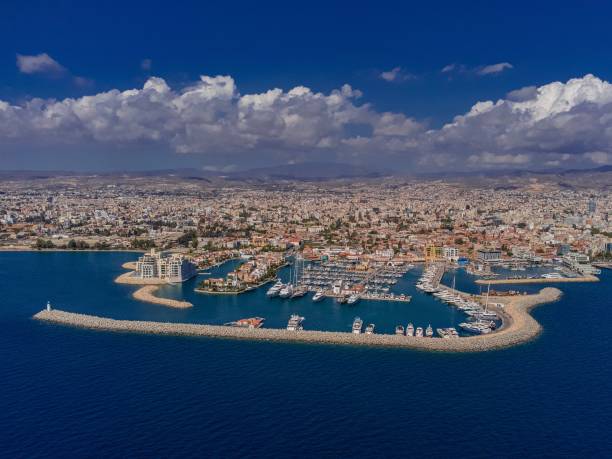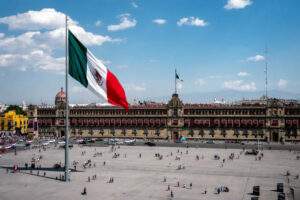What To Know About The Greek Cypriots In Cyprus

While Cyprus is known for its beautiful beaches and year-round sun, the island is currently divided into two countries with almost no communication between them. One of these countries is Greek Cypriots and the other Turkish Cypriots. If you’re planning a trip to Cyprus, it’s important to know a little bit about each group and what to expect when you visit.
Who are the Greek Cypriots?
The Greek Cypriots are the ethnic minority of Cyprus and make up around 15% of the population. They are descendants of the Aegean settlers who arrived in Cyprus in the late 4th century BC. The community grew rapidly after the Turkish invasion of 1974, when many Greek Cypriots fled to Britain as refugees. The Greek Cypriot community in Cyprus is largely urbanized and prosperous, with a well-educated population and a strong tradition of entrepreneurship. Greek Cypriots have been involved in politics since independence from Britain in 1960. They were the first group to sign a constitution and have played an active role in both the government and society since then.
Where did they come from?
The Greek Cypriots in Cyprus are a minority group that traces its roots back to the island’s Ottoman period. The British colonial authorities recognized their distinct national character and granted them autonomy in 1960. However, the Turkish Cypriot majority did not recognize this decision and tensions between the two groups have persisted to this day.
Today, Greek Cypriots make up around 15% of the population on Cyprus, with a large community also living in Turkey. They are largely concentrated in the north and east of the island, where they have maintained a strong cultural presence. Greek Cypriots are well-educated and enjoy high levels of economic prosperity, although they continue to face significant discrimination from Turkish Cypriots.
The Struggle for Cyprus
The Greek Cypriots in Cyprus have been struggling for independence since 1974, when a coup d’état led by the junta of George Papadopoulos resulted in the island becoming a de facto part of Greece. In 1983, a referendum on the issue of reunification with Greece was held and 97% of the participants voted in favor. However, events that followed have continually hampered progress towards reunification. Since 1974, Cyprus has been divided into an internationally recognized government in Nicosia and an unrecognized government in Ankara. The latter is supported by Turkish troops stationed on the island and has pursued a policy of unending negotiation with both sides without success.
In 1995, negotiations aimed at reunifying the island were successful and a joint declaration was signed proclaiming an end to the conflict between the two sides. However, disagreements over power and territory have prevented any substantive progress from being made since then. In 2013, Archbishop Chrysostomos II declared that he would not recognize any agreement reached between Nicosia and Ankara if it did not include recognition of the rights of Turkish Cypriots to self-determination. This announcement sparked protests among Turkish Cypriots who want their own state within Turkey. Recent talks between Greek Cypriot and Turkish Cypriot leaders have failed to resolve these issues and tensions remain high.
Greek Cypriot Culture
The Greek Cypriots in Cyprus are a unique ethnic group, with their own culture and history. There are approximately 150,000 Greek Cypriots living in the island nation, which they have inhabited since the late 15th century. Greek Cypriots trace their ancestry back to the ancient Greeks, who first settled on the island in around 1220 BC.
The Greek Cypriot culture is based on the traditions of the Byzantine Empire. The language spoken by the Greek Cypriots is a form of Modern Greek, and they are heavily influenced by Turkish culture. The traditional music of Greece, Turkey, and Cyprus is highly dynamic and incorporates elements of all three cultures.
Greek Cypriot society is divided into three main classes: the aristocracy (the enkrateia), the middle class (opinion polloi), and the working class (elasia). Each class has its own distinctive social customs and values. The Greeks in Cyprus have also played an important role in shaping modern Cyprus as a democratic state.
You may also like;
- A Guide To The Sichuan Province
- What’s The Function Of The Biceps Muscle?
- How to become an air Hostess
- How did Adolf Hitler die
- How did Judas die in the Bible
Frequently Asked Questions on Greek Cypriots In Cyprus
What is the difference between Greek and Greek Cypriot?
Greek Cypriots and Turkish Cypriots are two distinct ethnic groups who live on the island of Cyprus. Greeks represent about 75% of the Greek Cypriot population, while the remainder are Turks. The two groups have lived on the island in relative peace for centuries, but tensions between them have occasionally flared into violence.
What race are Greek Cypriots?
The Greek Cypriots are a people who originate from Cyprus. They are of Mediterranean descent and have a unique culture and history. They come from a long line of Peloponnese people who were immigrants and aboriginal inhabitants.
What are Cypriots known for?
Cypriots are known for their Mediterranean cuisine, which combines traditional Greek flavors with ingredients from the other parts of the Mediterranean. Cypriots are also well-known for their hospitality, lively nightlife, culture and scenic beaches.
Conclusion
The Greek Cypriots are a minority group in Cyprus who identify as Greeks. They have been living in the island nation since 1974, after fleeing from Turkey following the Turkish invasion of Cyprus. The Greek Cypriots have had a complicated relationship with the Turkish Cypriots and its government, as they often feel marginalized by the larger population and their political power is not recognized by Ankara. Despite these challenges, Greek Cypriots have made significant progress over recent years and enjoy some degree of autonomy within the country.
Last Updated 3 years by










